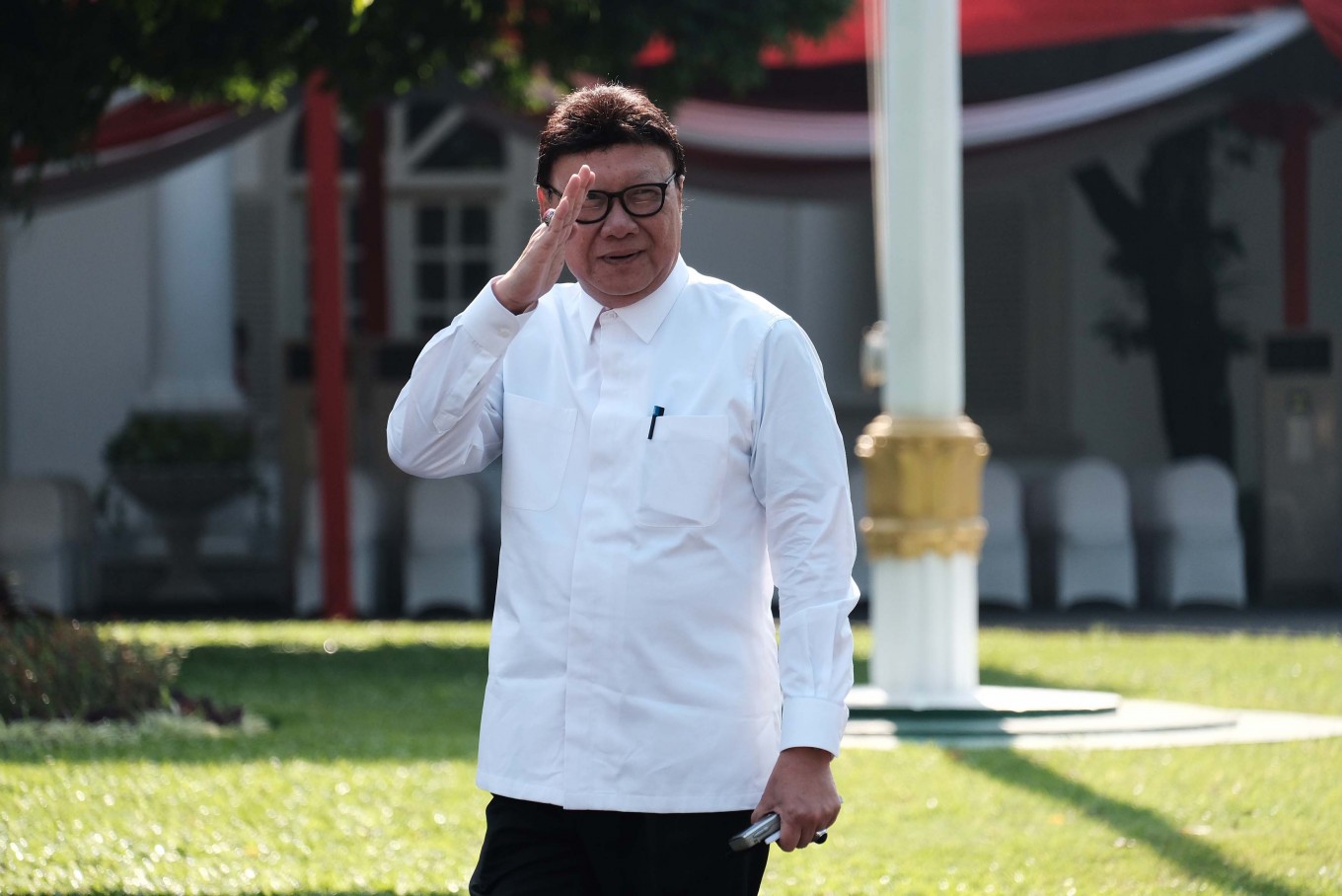Popular Reads
Top Results
Can't find what you're looking for?
View all search resultsPopular Reads
Top Results
Can't find what you're looking for?
View all search resultsTwenty-nine state bodies to be dissolved in 2021
The government aims to continue with its efforts to reduce bureaucratic bloat in 2021, with 29 state agencies slated for the chopping block.
Change text size
Gift Premium Articles
to Anyone
T
he administration of President Joko “Jokowi” Widodo plans to dissolve a total of 29 state agencies in the coming year as it continues its debureaucratization efforts launched in mid-2020.
Administrative and Bureaucratic Reform Minister Tjahjo Kumolo said that the government would this year disband 10 agencies founded by either a presidential regulation (Perpres) or a presidential decree (Keppres). The 19 other agencies destined for the chopping block were established by laws and as such, could be disbanded only by the House of Representatives through an amendment to the relevant legislation.
Tjahjo said he expected the dissolution of these agencies to be completed next year.
“We have drafted a Perpres to dissolve 10 of them and we’ll just have to announce [which ones] later this year. Meanwhile, we also need to cooperate with lawmakers to disband another 19 agencies,” said the minister, who is a member of the ruling Indonesian Democratic Party of Struggle (PDI-P).
One reason for trimming the bureaucracy was the overlap between the tasks of several ministries. For instance, said Tjahjo, the government planned this year to dissolve the National Commission for the Elderly (Komnas Lansia), as it believed that the ministry covering the relevant jurisdiction could take over its duties.
Komnas Lansia, established by presidential decree in 2004, is tasked with helping the President draft regulations to improve the wellbeing of the country’s elderly citizens. However, elderly welfare is something that the Social Affairs Ministry’s social services and rehabilitation directorate general already manages.
Another reason for disbandment was because the agencies in question had proven “ineffective”, Tjahjo said on Thursday.
This was the case with the Surabaya-Madura (Suramadu) Development Agency, established by Perpres in 2009. The agency is in charge of economic development planning for the regions surrounding Suramadu Bridge connecting Surabaya and the island of Madura in East Java.
“The agency comprises representatives from various ministries and the East Java administration. But the coordination among them is poor, and so we want to dissolve it,” said Tjahjo. He did not elaborate on which ministry would take over its duties.
In July, President Jokowi set out to disband state agencies that his administration had deemed ineffective or had responsibilities that overlapped with those of ministries. The President expressed his eagerness for a leaner bureaucracy, which he said would help the government rein in spending as it reallocated its resources to mitigate the COVID-19 health emergency.
His aim was translated later that month into Perpres No. 82/2020 to consolidate the decision to disband 18 state agencies, including the National Mangrove Ecosystem Development Coordination Team (TKNPEM).
The TKNPEM was hardly the first to be dissolved in Jokowi’s drive for debureaucratization, and it was certainly not the last according to the presidential regulations that both preceded and followed Perpres No. 82/2020.
Shortly after his inauguration in 2014, Jokowi disbanded 10 state bodies through Perpres No. 176/2014. The next year, he moved to dissolve an agency tasked with reducing greenhouse gas emissions and deforestation. He also disbanded the National Climate Change Council and returned its mandate to the Environment and Forestry Ministry. In 2016, he disbanded 10 more state bodies, and he shuttered the Sidoarjo Mudflow Mitigation Agency in 2017.
Riant Nugroho, the director of the Institute for Policy Reform, said that the government had made good strides in trimming the bloated bureaucracy, a problem that emerged when the country started addressing political reform in 1998.
Until the end of Susilo Bambang Yudhoyono’s presidency in 2014, however, the government had a tendency to set up numerous "auxiliary agencies" to tackle the country’s wide-ranging problems. One after another, commissions and councils were established instead of improving the scope of work at existing state institutions, with the situation coming to a head in recent years.
As a result of the bureaucratic bloat, Riant said, the government had to set aside a considerable portion of its spending budget every year to cover the operational costs of these many state bodies. The extra costs quickly became unjustifiable after it emerged that some agencies simply duplicated the tasks of existing institutions, while others failed to provide any real services to the public.
“Reducing the number of auxiliary state bodies is necessary to prevent the government from overtaxing its budget. Doing so could also pave the way for better governance, too,” he said on the weekend.
However, any plans to instill effective governance would fail if the state were unable to refrain from forming new agencies or cannibalizing the responsibilities of existing bodies, said lecturer Trubus Rahadiansyah of Trisakti University’s law school.
Trubus suggested revisiting some useful lessons from the New Order regime, such as the long-term planning associated with the now-defunct State Policy Guidelines (GBHN).
“I think it would be good for the current administration to devise better planning documents, such as the National Long-Term Development Plan [RPJP], as the basis for deciding whether or not it should add new agencies in the future,” he said.










